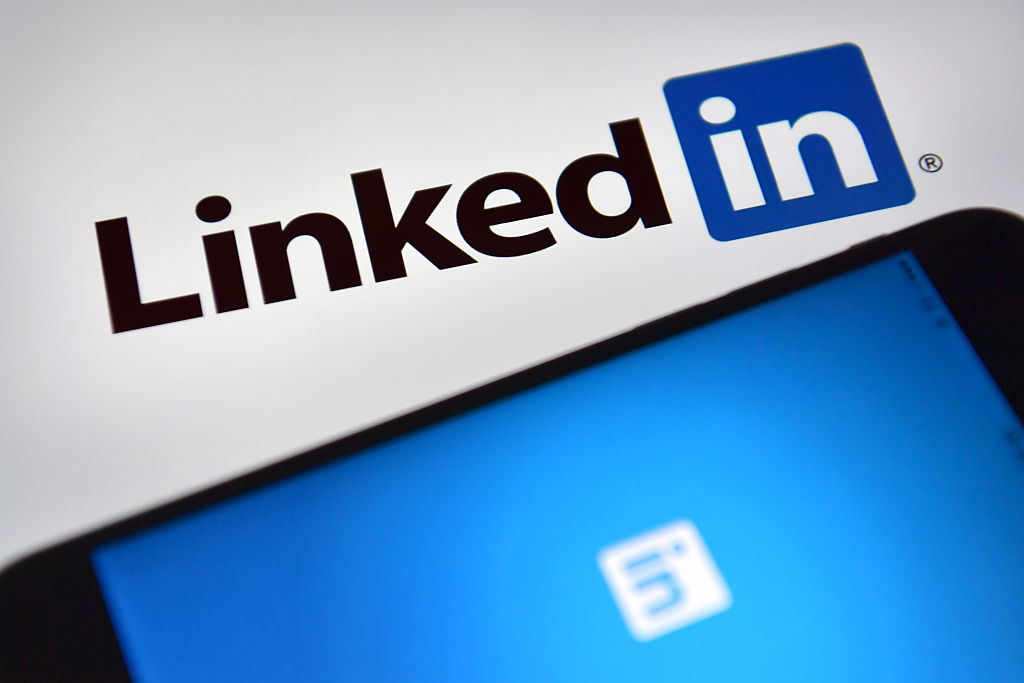People always ask me: Archie, what’s the secret to your success?
Whenever this happens, I smile. I see the dynamism of my younger self in their eyes.
Then I tell them it comes down to three simple steps:
Step 1: Identify the person you want to be.
Step 2: Spend every waking hour trying to be that person.
Step 3: Fabricate events, daily routines and job interviews and then post about them on LinkedIn in the vain hope they might garner a couple dozen reactions from people you met at a careers workshop in a convention centre in Tampa, Florida last year.
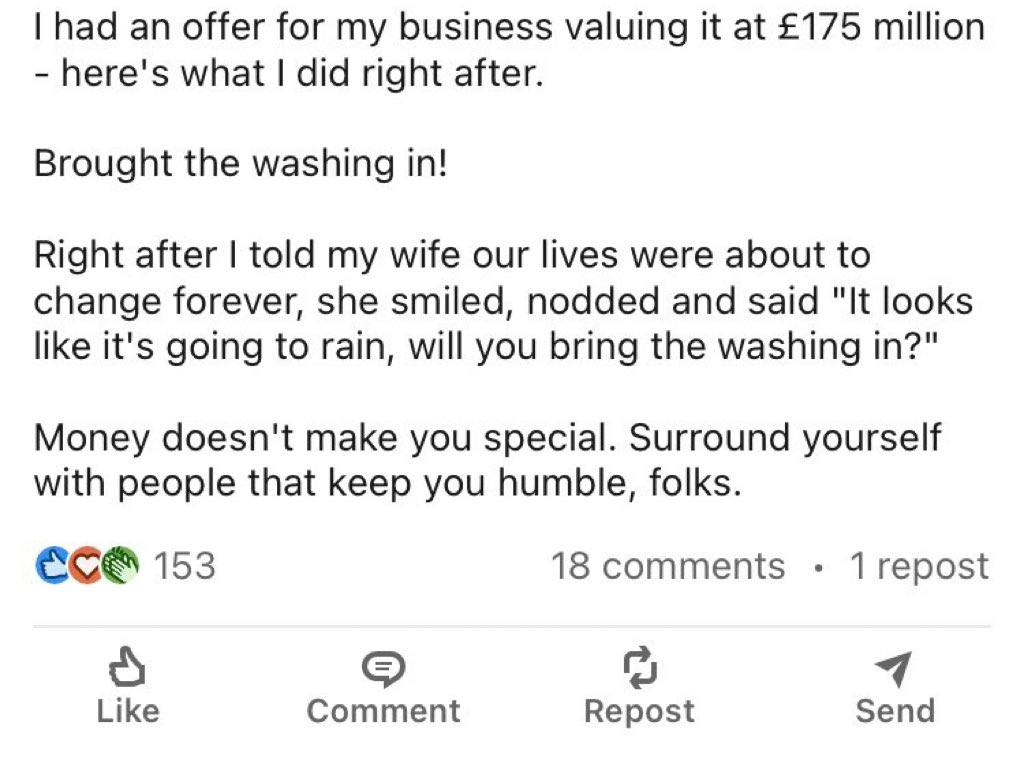
Photo: Twitter @StateOfLinkedIn
LinkedIn is, without a doubt, the most contemptible of the social media sites. It takes the toxic, superficial world of Instagram, mixes it with the dishonesty of Twitter, throws in a sprawling network of people you vaguely know to validate users, much like Facebook, and then, if all of that wasn’t enough, adds a corporate, monetary smugness that legitimises the whole charade and makes LinkedIn’s effect the most damaging of all.
Where other platforms are famous for distorting body image and attention spans, LinkedIn silently warps people’s entire professional lives. Like all forms of social media, users appear richer, happier and better looking, but where LinkedIn is so particularly troublesome is in its ability to appear licit, despite being awash with a self-sustaining sea of clichéd, meaningless and increasingly false information.
Let’s start with the big lie: LinkedIn operates on the falsehood that professional success is impossible without LinkedIn. From this fraudulent provenance, inflated job titles, rhetorical questions and self-help bullet points are able to construct a shallow new reality.
This world-building is made possible by the inoffensive and seemingly obvious nature of the advice on LinkedIn. On a surface level, you couldn’t possibly disagree with it. ‘Identify what you want to be and try to make it happen’ is a decent place to start in life. ‘Wake up early and seize the day’ is a solid, if oversimplified, motto. I’ve got nothing against suggesting ‘Read more and widen your horizons’. Even the slightly more specific banalities like ‘Communicate clearly via email’ and ‘Prioritise human connections in a business setting’ are broadly indisputable.
Isolated and properly contextualised, it all makes sense. The damage is done when these supposed universal truths – that say so very, very little – are sold as guarantors of success and a playbook by which the rich and powerful live. Crucially, they place the onus solely on the little man, building in an inherent blame if the promised wage and job and lifestyle don’t follow.
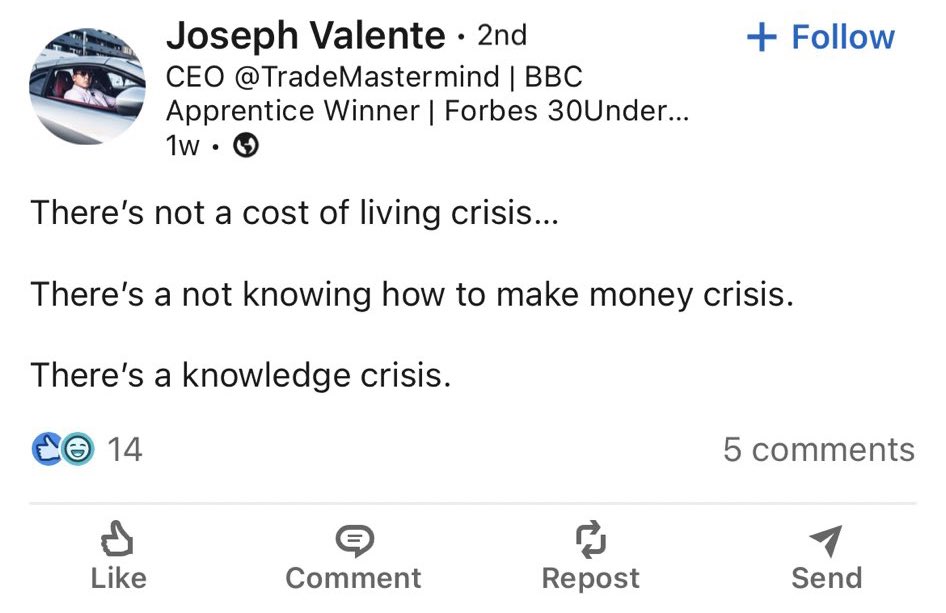
Photo: Twitter @StateOfLinkedIn
‘But, vague-LinkedIn-career-guru, I did everything you said… I made connections… I read books, I listened to podcasts, I manifested… I really, genuinely tried… Why am I still not earning six figures by the age of 25? Because it’s a con, you poor little soul, and the world is far too complex and unjust to be reduced into a series of convenient bullet points that overlook the hierarchical systems of wealth and class that LinkedIn perpetuate further.
The platform was set up in California in May 2003, and continues to be run from the west coast city of Sunnyvale. Despite LinkedIn’s worldwide expansion – featuring over 900 million accounts, spread over 200 countries and territories – there remains a decidedly American quality to the website. In both its strengths and weaknesses, LinkedIn typifies the United States.
There is a passage in Kurt Vonnegut’s Slaughterhouse-Five where the fictional American playwright, turned Nazi propagandist, Howard W. Campbell, Jr writes: “America is the wealthiest nation on Earth, but its people are mainly poor, and poor Americans are urged to hate themselves. To quote the American humorist Kin Hubbard, ‘It ain’t no disgrace to be poor, but it might as well be.’ It is in fact a crime for an American to be poor, even though America is a nation of poor.
“Americans, like human beings everywhere, believe many things that are obviously untrue. Their most destructive untruth is that it is very easy for any American to make money. They will not acknowledge how in fact hard money is to come by, and, therefore, those who have no money blame and blame and blame themselves.”
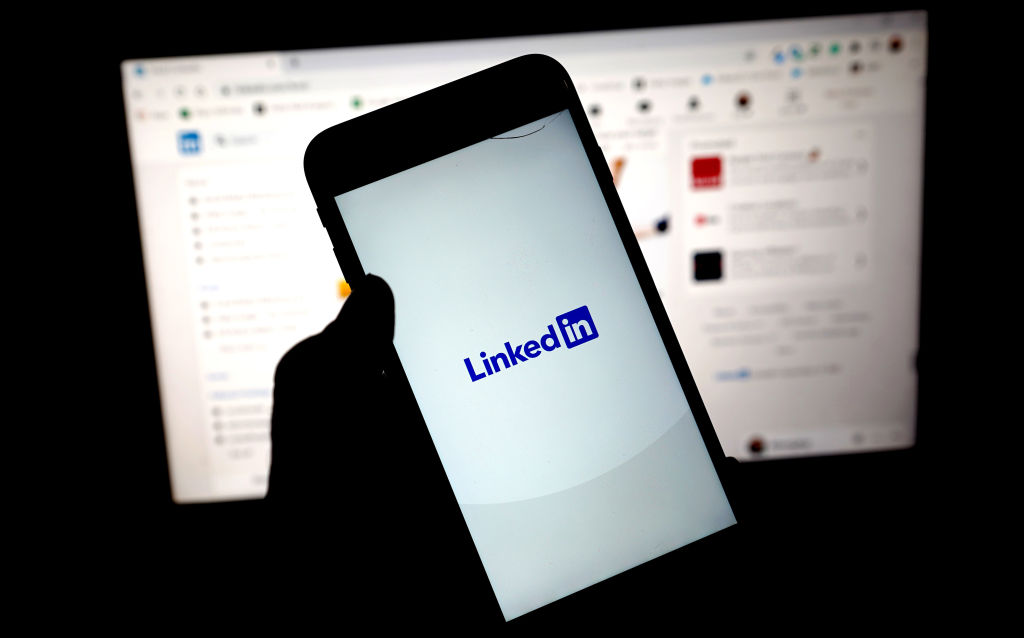
(Photo by Edward Smith/Getty Images)
America is, so far as I can tell, the only country to have successfully convinced its poor that it is their fault they’re poor. That’s not to say the U.S. doesn’t host financial opportunity. It does, and, ironically, you need look no further than LinkedIn to see it. The site has found millions of people employment, kept old colleagues in touch, put new colleagues together, connected businesses with shared or vested interests, and widened the reach of work, allowing people to demonstrate their worth while bringing professional opportunities into their pocket. The rest of the world has, in many ways, benefitted from LinkedIn as a digital slice of America’s corporate culture.
The other side of the nickel is importing the elements most unhealthy, most unjust and most untrue from the same corporate culture. Once again, you need to look no further than LinkedIn to see them – the deceit, the materialism, the narrow-mindedness, the ignorance.
In recent years, two other elements have exacerbated these effects further still. The first, and lesser, is an increasingly individualistic, narcissistic society, encouraging a relentless quest for self-oriented improvement. I believe both individualism and introspection have potentially tremendous upside, but, as of now, they too often manifest in egotistical young men claiming to have alleviated themselves of their ego and beaten the system. This is perfectly on display in the personal success stories shared on LinkedIn.
The second development is online misinformation – not unique to the site, but the biggest issue LinkedIn faces nonetheless. For while it would be unfair to lay my sweeping criticism of the modern world at LinkedIn’s door alone, the platform does have a duty in moderating the cesspit of motivational delusion it has become.
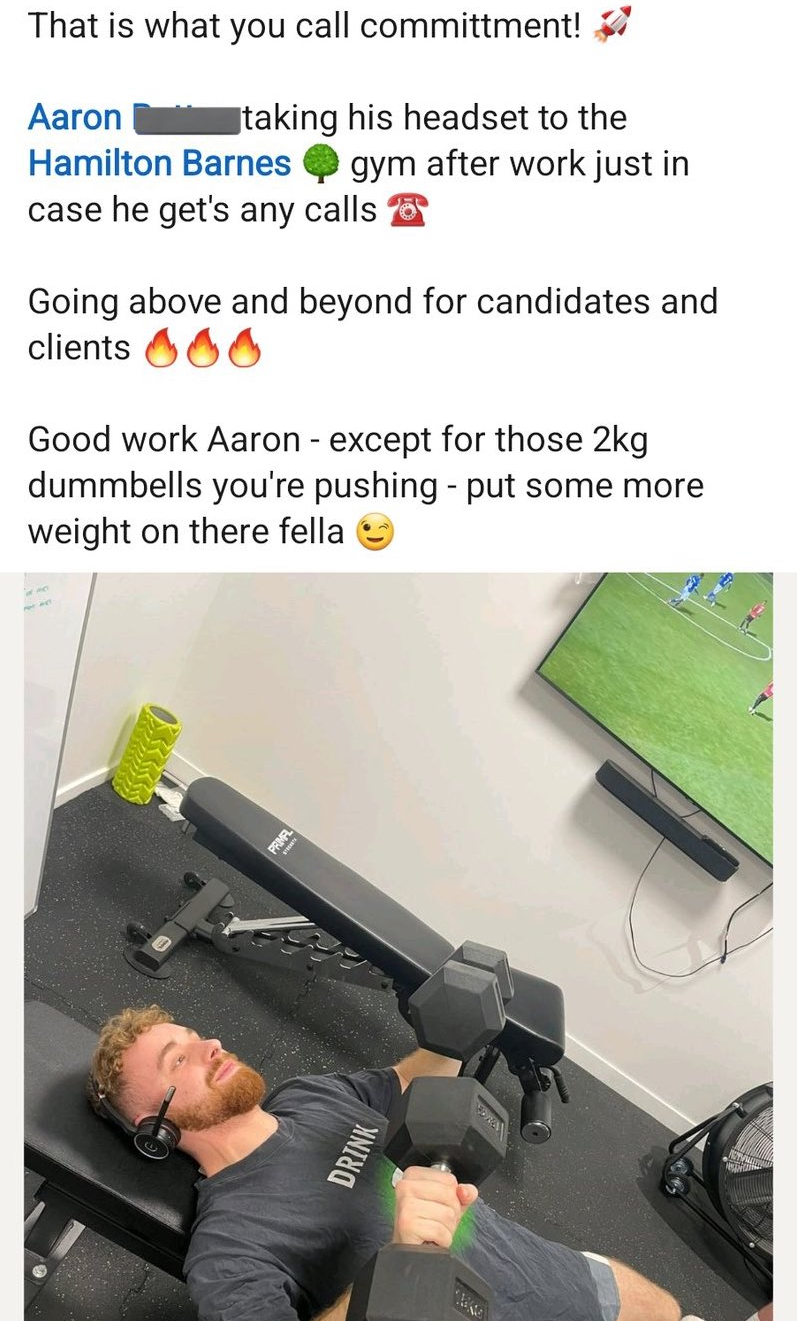
Photo: Twitter @StateOfLinkedIn
Because I do sympathise with the pious young professionals who believe the nonsense these experts spout. The extent of their lies and half-truths may seem obvious, but if you encountered countless blokes purporting to be multi-millionaires (like, say, I don’t know… Stephen Bartlett?) telling you how exactly they made shed-loads of cash, you may well listen.
It makes success sound simple. It’s telling you exactly what you want to hear, and it’s easy to forget how much easier it is to hear what you want than to realise the complex truth of a matter. Where it gets really dangerous is when ‘coaches’ acknowledge how multifaceted issues are, but offer to cut straight through the noise anyhow, paving a golden road to some plane of financial freedom and emotional enlightenment just by signing up to their online seminar and doing X, Y, Z.
I sincerely doubt there is a plane of financial freedom and emotional enlightenment. If there is, the directions there are not found in posts on LinkedIn. The saddest part of conflating good habits with an imaginary goal is that it makes people overlook the tangible benefit in doing these things regardless. Appreciation, gratitude, self-awareness, education, work ethic and a network of people who care about you will all help, whatever you do. They may well bring you money, but know they can’t promise it.
Believe it or not, I’ll concede that nobody has ever actually asked me: Archie, what’s the secret to your success? Perhaps one day they will, most likely they won’t. And that’s okay – I’m sure I’d give a shite answer anyway.

